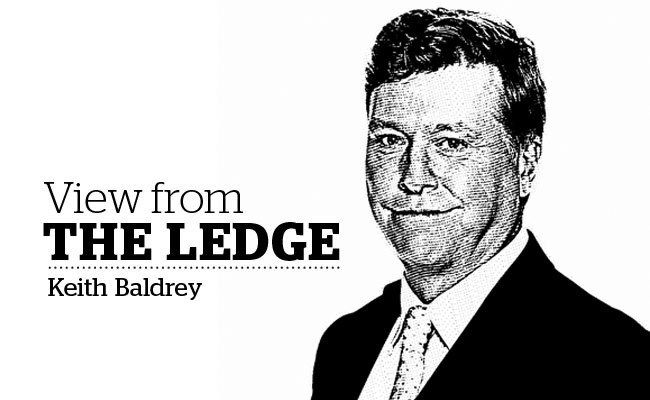Even for a political observer, it’s difficult to get too excited about an election campaign during the dog days of summer.
With the exception of political operatives, I suspect it’s the same thing for most people. Minds are elsewhere right now: the beach, barbecues, vacations etc.
The pronouncements coming from politicians right now are background noise. They are being heard, but the volume is turned down low.
It’s not just because it’s the summer that the federal election campaign appears sluggish and distant. It’s also because its record length (11 weeks) means many folks are putting off “paying attention” in any serious way until voting day draws nearer.
I suspect the interest and energy will pick up after Labour Day, when vacations end, kids go back to school and a more normal routine — which includes the consumption of more media news stories — kicks into gear for many.
But of course, the campaign has been underway a few weeks now and even if it’s not on everyone’s radar screen 24/7, it has displayed some glimpses of what to expect when things begin to heat up out on the trail.
This month is like a lengthy warm-up before the big game actually begins. The key players have shown their campaign style and tactics.
Judging from what we’ve seen so far, we can expect the NDP’s Tom Mulcair to continue to be cautious in terms of policies and in dealing with his own side. He’s been emphasizing things like law and order and child care and not taxes, and has ignored or kept out of sight his party’s sizable pro-Palestine and anti-development factions.
Mulcair wants to make sure he doesn’t look threatening or radical, and simply wants to present a viable and reasonable alternative to a governing party that appears to be teetering.
The Conservatives’ Stephen Harper will continue his tightly scripted, uber-control approach to campaigning. He will continue to try to appeal to a minority of voters, most of them in southern Ontario, Alberta and parts of B.C.
And his policy roll-out will continue to be aimed at older voters, who tend to vote in far greater numbers than younger ones. Harper is focused on the 39 per cent of the electorate who keep him in power, not on a majority of people.
The Liberals’ Justin Trudeau will continue just trying to be heard. He’s likely felt the slow start to the campaign the most negatively, as he appears to have the most ground to make up and so he needs people to pay attention.
But because he seems to be the underdog, any sign of rising fortunes for Trudeau may allow him to portray himself as the “comeback kid,” which can take on a momentum in the latter stages of an election campaign (just ask Christy Clark).
So far, the three leaders are mostly shadow-boxing with each other. The lack of a mass audience televised debate (the one that did occur had less than a third of a regular audience) has meant little direct interaction for them.
No issue has dominated so far. The Duffy trial has received, by far, the most media attention (nationally more so than locally) of anything, but it’s unclear whether it will cut into Conservative support come Oct. 19, which is still a long, long ways off.
I suspect scandals don’t move voters from one party to another as much as many folks in the media seem to think. In the end, the economy usually trumps everything else and you can count on hearing a lot about that for the next seven weeks or so.
Make no mistake, the campaign will heat up next month. But until then, feel free to be focused more on the barbecue and the beach than on federal politicians.
Keith Baldrey is chief political reporter for Global BC. He can be reached via email at [email protected].
What are your thoughts? Send us a letter via email by clicking here or post a comment below.



